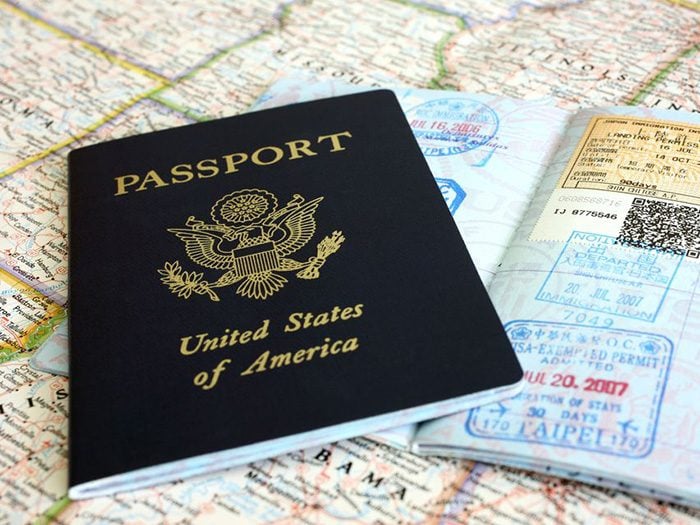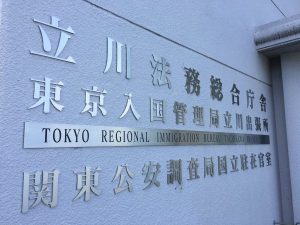
If you want to get the benefit of doing part-time work at multiple schools, when visa renewal rolls around you might want to sponsor your own visa for Japan. But how do you do that?
It’s hard to know what to do if you want to sponsor your own visa, as the Japanese Immigration authorities wouldn’t know what you meant if you asked about this. That’s because there is no such thing as a self-sponsored visa. So then why are so many people talking about it and asking about it on online forums like Reddit or in Facebook groups?
It’s actually just a way to get a part-time employer to sponsor your visa and using the “Permission to Engage in Activities” forms to fill in your other part-time jobs! Sounds simple right? There are a few things you need to keep in mind and that caused me quite a headache. I got one of my clients to sponsor my visa so I could continue working part-time with the higher pay that comes with it. Let me tell you how it works.
What should I do if I want to self-sponsor my visa in Japan?
First you need to get the right form. Many freelance photographers, teachers and engineers use the Humanities, International Services and Engineer visa now, and you can find that form to renew it here.

You’ll probably spend more time than you want to at this place…
You’ll need:
- Demonstrate an income of ¥3,000,000 annually (that’s ¥250k per month) to show that you can survive in Japan with your part-time incomes. I’ve heard people saying ¥200k per month is enough outside of Tokyo, but I can’t confirm that with my experience as I live in Tokyo and make more than that. For example, if you have your biggest salary of ¥150k/month from a part-time teaching job, you’ll need another ¥100k to clear the requirement.
- A part-time employer or client to sponsor your visa renewal. Sponsorship for renewal doesn’t cost anything for the employer, but they do have to fill out some detailed info about the company, how much they have in capital, how many employees and they need to hanko (official company seal) on the form. It takes a while so get this done way in advance of showing up to immigration.
- Make sure you’ve filled out a 個人事業主 (kojin jigyō nushi – Sole Proprietorship) at the local tax office. Bring a copy.
You’ll need to bring some things with you to immigration:
- The correct form from here along with a full list of everything required to bring for each renewal type. These can also be found on paper at the immigration office. Be warned they may ask you for more stuff that isn’t listed on the government site…
- A passport photo (4x3cm), your zairyuu card and your passport, and the tax returns from the last 2 tax years (if you’ve been here that long).
- Proof of your work and incomes (a contract showing income and hours worked is enough). Make sure it is clear and you have supporting documents – contracts, payslips or invoices. If it’s in Japanese, even better (and maybe necessary, but I can’t comment as my contracts were in Japanese).
- For some jobs you may need a 在職証明書 (zaishoku shomeisho – Certificate of Employment) – I didn’t need this but they may ask for it.
- A 源泉徴収票 (gensen choshu hyo – Tax Withholding Slip) from your local ward office.
- If you have quit a company in Japan before you’ll need a 退職証明書 (taishoku shomeisho – proof of retirement) from any previous companies. Make sure to ask for this a long time in advance as your ex employers might move more slowly than you’d like.
Here’s the list of items on the government website that it says you need.
Self-sponsoring a visa in Japan is a big burden but it can open up big opportunities
You won’t be beholden to one company anymore
This is the biggest one for me. When people think of one job as secure, I am really confused what they are talking about. If your boss turns around and fires you (this has happened to me before), suddenly you have a desperate scramble to find another job or you’ll be out on the street! For me, if a client or a part-time job is a pain to work with, I can easily find something else to replace that part of my income without worrying about losing my livelihood. Worst case scenario, as a writer I can just do more freelance writing work online to bring in a little extra money while I look for other jobs.
Part-time jobs pay a lot more per hour
If you calculate your actual hourly rate from your full time job, don’t be surprised if you’re only making maybe ¥1500 or ¥2000 per hour. I know I was, even when I was making ¥4,000,000 per year at a private school, I realised that my hourly rate was just a hair above ¥2000. Now I don’t get out of bed for less than ¥3500 per hour, and often make a lot more than that. These options open up when you start working in the part-time teaching space, especially if you have the skills and credentials to back it up.
Take a look at some part time jobs on our board.
You’ll have more options in what kind of work you do
Most of the photographers, models, voice actors and top-paid teachers I know are “self-sponsoring” their visa so they can do the kind of work that they are passionate about. If you are just stuck at one company and need to stay there for a paycheck and a roof over your head, you might be missing out on doing the kind of work that makes you excited to get out of bed in the morning!
Warning:
This worked for me and it has worked for a lot of other people in Japan, but that doesn’t mean it will work for you, at least on your first try. The first immigration officer I got told me to come back with just one company. I just went again the next day with mostly the same paperwork and got a different immigration officer at the desk, and he put through all my paperwork quickly. First guy must not have had his coffee that day, eh?
As always with this kind of advice, always always consult with a lawyer before doing anything. My lawyer helped me get all of my paperwork in order and apply for the correct permissions to do my other side work, so you definitely should do that too.
The process isn’t too hard, and can be done when you renew your visa.














